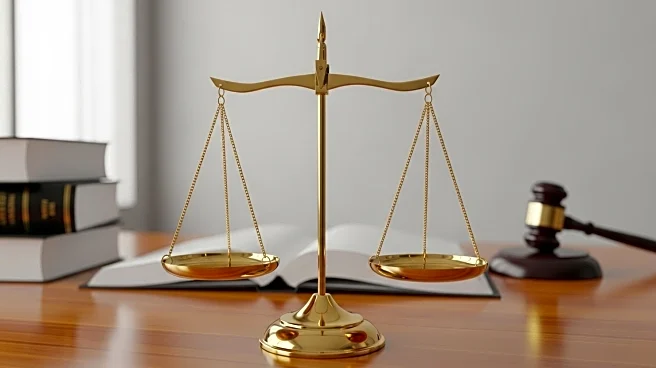What's Happening?
President Trump has directed the Justice Department to pursue capital punishment more aggressively, impacting legal defense teams across the nation. Attorney General Pam Bondi has authorized prosecutors to seek the death penalty in 20 cases, marking a significant increase from previous years. This directive comes amid a severe shortfall in federal funding for court-appointed attorneys, investigators, and other defense experts, exacerbated by a government shutdown. Legal teams are facing tighter deadlines to build cases against the death penalty, with some arguing that this deprives defendants of their constitutional rights. The push for capital punishment is part of Trump's broader strategy to use it as a deterrent, but it has placed additional strain on defense resources, particularly in Washington D.C., where a surge in federal law enforcement presence has led to increased prosecutions.
Why It's Important?
The increased pursuit of the death penalty under President Trump's administration has significant implications for the U.S. legal system and defendants' rights. It challenges the capacity of legal defense teams, particularly those representing indigent clients, to provide adequate representation. The funding shortfall and government shutdown further complicate the situation, potentially leading to delays in legal proceedings and affecting the quality of defense. This development could lead to more defendants facing capital punishment, raising ethical and legal concerns about the fairness of the justice system. The directive also reflects a shift in federal policy towards harsher penalties, which could influence public opinion and legislative actions regarding capital punishment.
What's Next?
The Justice Department is expected to continue evaluating cases for potential capital punishment, with Attorney General Pam Bondi making final decisions. Legal teams may seek extensions or file motions to challenge the government's push for the death penalty, citing constitutional rights and inadequate time for defense preparation. The ongoing government shutdown may further delay payments to court-appointed attorneys, impacting their ability to work effectively. Stakeholders, including legal advocacy groups and civil rights organizations, may increase pressure on Congress to address funding issues and reconsider the broader implications of the death penalty directive.
Beyond the Headlines
The push for capital punishment raises deeper ethical questions about the use of the death penalty as a deterrent and its impact on marginalized communities. It highlights the disparities in legal representation for indigent defendants and the challenges faced by defense teams in navigating complex capital cases. The directive may also influence public discourse on criminal justice reform and the role of capital punishment in modern society. Long-term, this could lead to shifts in policy and legal standards regarding the death penalty, as well as increased scrutiny of the justice system's ability to uphold constitutional rights.









